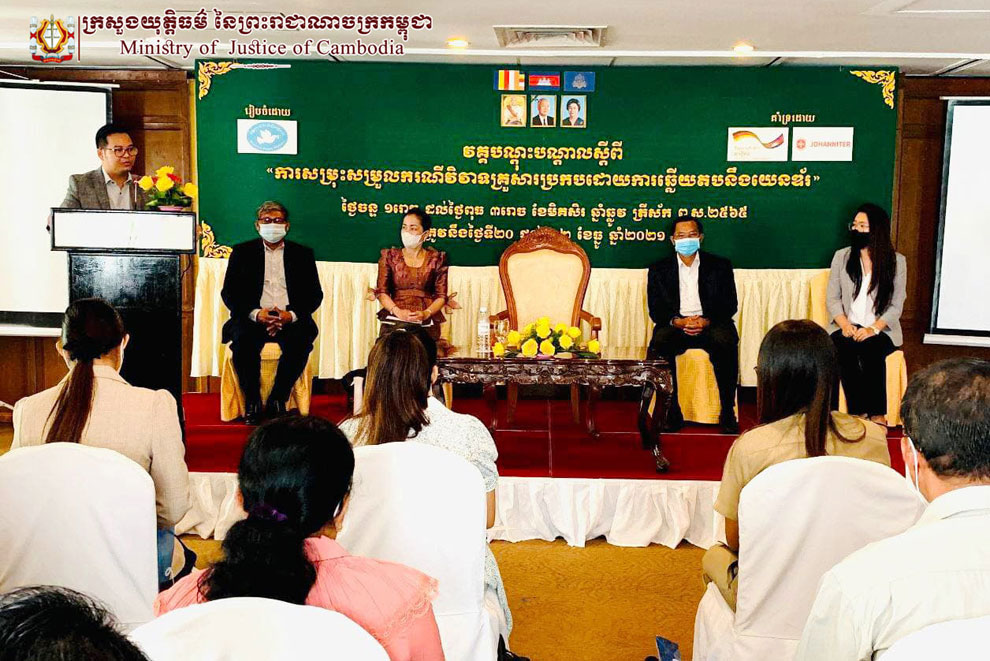
Justice ministry secretary of state Chin Malin speaks during the training of local officials on solving family disputes at Sunway Hotel on December 20. JUSTICE MINISTRY
The Ministry of Justice has begun offering training courses for local officials in Tbong Khmum and Kampong Chhnang provinces to teach them the skills necessary for resolution of family disputes. It said this will ideally be of benefit to both parties as well as saving the time and effort of court proceedings.
During the opening ceremony of the training course on “Gender Equitable Family Dispute Resolution” on December 20, ministry secretary of state Chin Malin said the training course was intended for local officials who provide dispute resolution services.
“Resolving family disputes is especially important at the grassroots level because it creates harmony in the first place so that there are no family conflicts which can lead to family crises that may escalate to domestic violence. Sometimes family problems that lack appropriate solutions can lead to insecurity in local communities and society at large,” he said.
Family dispute resolution is a component of the government’s broader strategy of encouraging the settling of disputes without involving Cambodia’s overburdened judicial system through approaches like mediation, arbitration and other extrajudicial methods, he added.
“But what we are training for is mediation – not decision-making on behalf of either of the parties. Facilitation can often turn big problems into smaller ones and small problems into ‘no problem’. But it depends on the decisions of the parties to the dispute,” he said.
Gender and Development for Cambodia programme manager Eng Chandy praised the training programme and its role in the government’s strategy outlined in the National Plan for the Elimination of Violence against Women.
“Family problems are some of the most complex type of disputes in any country. So solving family problems early on through mediation is key to reducing needless court cases that take resources away from dealing with other crimes that can only be handled by the judicial system,” she said.
She said her organisation has also cooperated with the authorities to provide additional training to local police officers and people in the provinces of Kampong Speu, Pursat, Kampong Chhnang and Prey Veng provinces.
Malin said the justice ministry has plans to encourage out-of-court dispute resolution mechanisms at the local level, especially in early 2022, when it joins hands with the Ministry of Women’s Affairs to disseminate guidelines for family dispute resolution methods with special consideration for the gender of those involved to be given to officials to implement at the local level.











